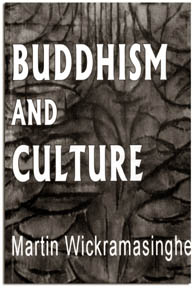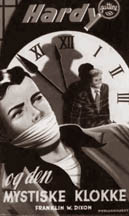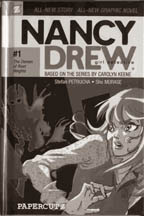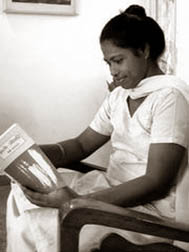Books
An unorthodox interpretation
Title: Buddhism and Culture
Author: Martin Wickramasinghe
Third Edition: 2006 Published by Sarasa (Pvt) Limited
Reviewed by Aditha Dissanayake
 Warning: to quote Martin Wickramasinghe's own last sentence in the
introduction to "Buddhism and Culture" (third edition, 2006) this review
"may be unpalatable to those Buddhist scholars who hold to the letter
rather than to the spirit of the Buddha's teaching". Warning: to quote Martin Wickramasinghe's own last sentence in the
introduction to "Buddhism and Culture" (third edition, 2006) this review
"may be unpalatable to those Buddhist scholars who hold to the letter
rather than to the spirit of the Buddha's teaching".
In giving an unorthodox interpretation to Buddhism he writes that the
Buddha was not a philosopher but a mystic, and it was not Buddha who
invented the karma theory, and moreover, Nirvana is not a state to be
attained after death, but a state to be realized in this life.
How does one do this? By getting rid of one's ego-consciousness i.e
by reaching a state whereby one can control one's desires, passions and
one's self - be able to live in a luxurious palace or in a hut and sleep
on the ground with equal equanimity.
Even though a rationalist's question "Is it possible to purge the
human mind of its inherited animal instincts and desires by
contemplation without destroying the mind itself?" cannot be logically
refuted Martin Wickramasinghe believes that the evidence supplied by the
lives of the deciples of the Buddha and other religious leaders of the
world goes to prove that there is something in this intuitional method
of discipline which leads to a spiritual rebirth".
Jataka stories and modern psychology
Ever heard of the Kunala Jataka where a king called Baka falls madly
in love with a very ugly girl? While walking in disguise through the
streets of the city he comes across a group of poor girls at the corner
of a byway. When the king approaches them one of the girls who is very
ugly, not knowing him, goes up to him and holds his hand.
The king is thrilled as if he has been touched by a goddess. Falling
deeply in love with her he orders his ministers to hold her hand too.
Though they loath her when they see her face, they are thrilled and
enamoured of her when one by one they come in contact with her flesh.
The point drawn here is that the Buddhist monks, in writing the
Jataka story betray a certain knowledge of the sensation of touch.
Martin Wickramasinghe points out that there are psychological truths
behind the Jataka stories and that they were not childish inventions of
the monks in trying to din into the ears of pious believers the truth of
the karma theory.
Chekhov and Buddhism
Writing about the views of life in Chekhov's stories, he says
Buddhists who read Chekhov's Teacher of Literature will remember the
story of Buddha's early life for, like Prince Sidhartha, Nikitin, the
protagonist too finds himself disgusted with the life of the feudal
society in which he has to live; "Where am I, my God? I am surrounded by
vulgarity and vulgarity.
Wearisome, insignificant people, pots of sour cream, jugs of milk,
cockroaches, stupid women...there is nothing more terrible, mortifying,
and distressing than vulgarity. I must escape from here, I must escape
today, or I shall go out of my mind" writes Nikitin in his diary almost
as though he is recording the Buddha's thoughts on the night he decides
to renounce his wealth and family.
Life, sex and customs
Writing about Realism in Buddhist Literature Martin Wickramasinghe
says the unromantic,unrealistic attitude to sex of the Buddhists was
replaced by Christian sex romanticism after the invasions, and that the
monk's attempt to impose their ascetic attitude to sex on laymen is a
reaction to this Christian sex romanticism.
"When the monks who have taken the vow of celibacy see young men and
women make love in a romantic way it is natural that the celibates
become victims of a mild jealousy.
Irrational attitudes and revivalist movements divide the educated
people of this country into two, if not more, rival camps...the
opponents attack and satirise the monks, and also Buddhism without
trying to understand the realistic attitude to early life, sex and
changing social customs...".
Thus, through this collection of twenty-three essays, Martin
Wickramasinghe not only applies an acute critical mind to probe certain
aspects of Buddhist philosophy, culture and literature, but also the
decay of the beautiful congregational worship of the Buddha image, the
Stupa and the Bodhi tree on full-moon days, bathed in a continuum of
soft silver light, enveloped by the fragrance of flower offerings and
the undue importance given to the study of dogmatic monastic philosophy
which are incompatible with Buddhism.
In "Buddhism and Culture" with its twenty-three essays, the
self-taught Sage of Koggala, presents philosophical and cultural
problems that provoke the critical reader to drag him or her out of
intellectual lethargy. To end with the words of Professor Joseph
Needham, "With this book we can all, as it were, sit in a basket chair
at Nawala (Rajagiriya) and enjoy the conversation of one of the most
active minds of contemporary Ceylon".
Talking Point: "The Enid Blytons we knew in school are no more" - a
reply
  by Dilini Algama I read in the Sunday Observer of July 02, 2006 in
the article 'Enid Blytons we knew in school are no more' (page 34,) that
Enid Blyton's books are in for a real change. Now that is very sad news.
More so for the Dicks and Fannys of this world who might have to change
their names as well. by Dilini Algama I read in the Sunday Observer of July 02, 2006 in
the article 'Enid Blytons we knew in school are no more' (page 34,) that
Enid Blyton's books are in for a real change. Now that is very sad news.
More so for the Dicks and Fannys of this world who might have to change
their names as well.
I'm not going to say whether those changes are for the better or not.
If I wouldn't want my child to read them I'll probably buy some other
book for her, not lead an international outcry against Enid Blyton's
books just because I don't want my kid to read them. Not that a kid of
mine will have much choice here though, because I still have most of my
books from childhood.
But I do find some things rather atrocious about this whole business.
They are complaining against Fatty! He never had a problem with it. He
wanted his friends to call him that. Now folks aren't we forgetting a
little something here? What about all those Nancy Drew and Sweet Valley
novels? Jessica and Elizabeth Wakefield have just perfect figures and
Mrs. Wakefield is slim too.
It is specifically said that they never have to work hard to keep
their figures slim and just so. But they are slim, pretty and blond- ah,
the wholesome all-American... Jessica's friends from the Unicorn Club
are slim as well and isn't it in the very first book that they really go
to lengths to find the bra size of a senior girl in their school? They
find that it is a size somewhat large and so they all go 'wow' over it.
A good 'wow', mind you. Now how degrading is that?
Now let's look at Nancy Drew. She is slim, smart, intelligent and
pretty (sounds a bit like a Sri Lankan marriage proposal just there).
All the guys like her. Now her friend Bess is another story. She is fat
and is forever on diets.
And prepare yourself for this. She is also the emotional wreck who
likes every guy she sees and ends up getting hurt all the time. Now how
degrading is that? Oh and to add to the whole porridge, her father Mr.
Drew is smart and handsome too. So is Ned Nickerson. So is Mr.
Wakefield. So is Steven Wakefield, the twins' brother. Now to go back to
the case of our scandalous Fatty, I wonder whether it would be better to
call him Albert, Jim, Peter or something just as harmless while
describing how slim and pretty and perfect everyone else is.
And how could I have left out the Hardy Boys? They are perfect. Their
parents are perfect. Their girlfriends are perfect. Except for their
friend Chet, he is a little too fat you see. Fat and likes ever so much
to eat, just like Bess. And I suppose this is not degrading?
What about the albino who is a bad guy in Hardy Boys? How mean is
that, ha? Not mean enough for an international outcry?
Hey guys you missed one thing. Enid Blyton also wrote a book titled
'Bimbo and Topsy'.
A life less ordinary: Tell-all book on a domestic's hard life
|

Baby Halder
|
When Indian domestic servant Baby Halder found work as a maid for a
professor, little did she realise that she would turn into a celebrity
author. She tells New Delhi correspondent Penny MacRae how the chance
encounter changed her life and has thrown the spotlight on the hard
lives of servants in Asia.
For many affluent Asians, the ideal servant is one who is seen and
not heard, rises early to get the kids off to school and uncomplaining
and serves the family the last cup of tea at night.
They don't want to hear any heart-wrenching or even mundane details
of their servants' lives. But the kindly employer of 34-year-old Baby
Halder was different.
The retired anthropology professor, noticing her interest in his
books as she dusted his volumes, gave her a notebook and told her:
"Write down your life."
A tale of poverty, hardship and violence emerged as Halder scribbled
at night in a school exercise book after the meals were cooked, the
dishes washed, house cleaned, and her own children abed.
Readers follow her as she is abandoned by her mother at four, married
off by her father at 12, becomes a mother herself a year later, then
finally flees her violent husband and takes her children to New Delhi to
seek a better life.
Halder's memoirs, translated from her native Bengali, have now
appeared in a book jointly published by Penguin and Indian publisher
Zubaan entitled "A Life Less Ordinary."
The book is already a best-seller in Bengali and in Hindi. A French
translation is in the works and the book will be one of India's
offerings at the Frankfurt Book Fair in October.
"My children no longer have to say I'm a servant," she smiles.
"They say proudly: "My mother is a writer."
|



 Warning: to quote Martin Wickramasinghe's own last sentence in the
introduction to "Buddhism and Culture" (third edition, 2006) this review
"may be unpalatable to those Buddhist scholars who hold to the letter
rather than to the spirit of the Buddha's teaching".
Warning: to quote Martin Wickramasinghe's own last sentence in the
introduction to "Buddhism and Culture" (third edition, 2006) this review
"may be unpalatable to those Buddhist scholars who hold to the letter
rather than to the spirit of the Buddha's teaching". 
 by Dilini Algama I read in the Sunday Observer of July 02, 2006 in
the article 'Enid Blytons we knew in school are no more' (page 34,) that
Enid Blyton's books are in for a real change. Now that is very sad news.
More so for the Dicks and Fannys of this world who might have to change
their names as well.
by Dilini Algama I read in the Sunday Observer of July 02, 2006 in
the article 'Enid Blytons we knew in school are no more' (page 34,) that
Enid Blyton's books are in for a real change. Now that is very sad news.
More so for the Dicks and Fannys of this world who might have to change
their names as well. 








